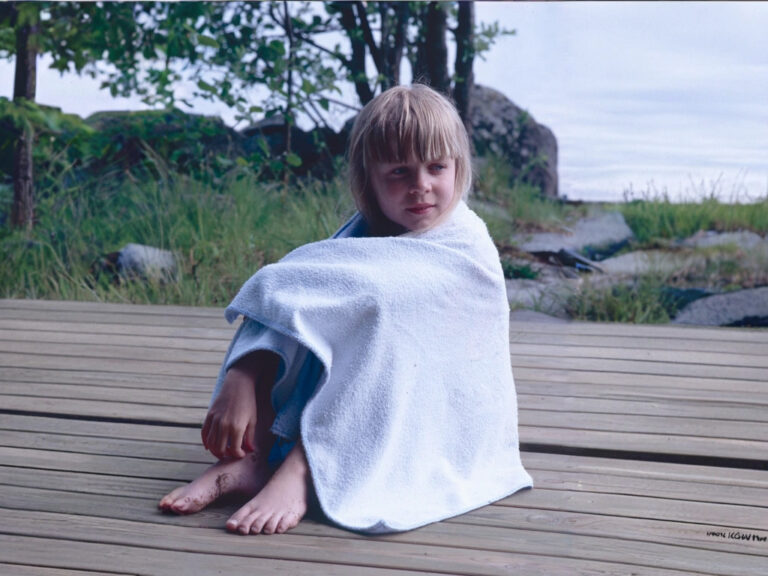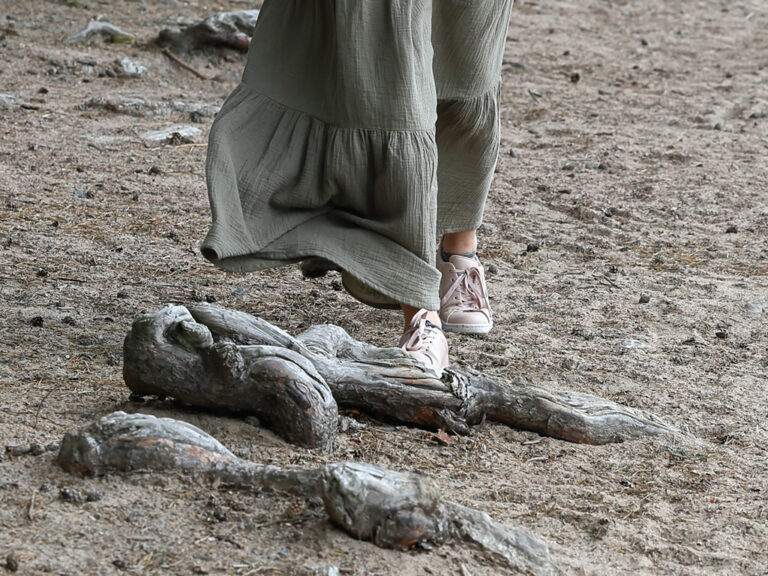Bihar Chapter
Every Soul Is a Teacher: What Little Lakṣmī Revealed About Innocence, Injustice, and Grace
Stories that shaped me
By Hari Śakti
Nearly fifteen years ago, I travelled to Bihar – a state known today for its poverty, but once a centre of great spiritual and intellectual wealth. It’s the land where Lord Buddha attained enlightenment beneath the Bodhi tree in Bodh Gaya. Drawn by my early Buddhist practice, I came to visit the sacred sites. But what I found there reached far deeper than pilgrimage. Something in the land awakened a voice inside me; a voice that called me to move there and live differently.
And so I did.
On my first visit, I met a group running a grassroots NGO working in the rural villages around Gaya. They invited me to return and support their social projects. After saving money in Finland, I packed a single backpack and came back – ready, but unsure of what exactly awaited.
Life in the village was humbling. I lived with the family of a friend I’d just met. My room was simple: a wooden window, a rope for my clothes, a bed, and a door I could close. No running water. Hardly any electricity. Outdoor toilets. The heat in summer was fierce, and I spoke no Hindi yet. But still, my heart said yes.
Mornings began with the call of roosters and the rustling of bullock carts. The fields bathed in golden light. Women swept the yards, children played barefoot in the dust, and elders gathered under the trees to talk. Life had a rhythm that felt older than memory; a life untouched by rush, still spinning in the ancient current of time.
The World She Carried in Her Eyes
At the school supported by the NGO, I began teaching English and assisting with community outreach. The students sat cross-legged on the floor, eyes bright with curiosity. One boy in particular stood out – Raju Kumar. He would walk barefoot for an hour each day to attend class, his books wrapped in an old jute sack. He once handed me a letter he’d written in English. It was his first letter, and it melted my heart.
One day Raju invited me to his village, and I travelled with him through fields in the blistering heat. When we arrived, he beamed with pride as he introduced me to his home – a modest hut of mud and straw, no furniture, no electricity. And that’s when I met his younger sister.
Her name was Lakṣmī.
She peeked out from behind the door, cheeks smudged with dust, hair tousled from playing outside. She was shy, but her eyes sparkled with something that struck me instantly: the quiet radiance of mādhurya – innate sweetness. She carried a kind of wonder I recognised in myself as a child. A longing for something beyond the known. A hidden dream, glowing softly behind her smile.
As we spent time together over the months, I learned more about her. Lakṣmī had only glimpsed a television once or twice, in a neighbouring elder’s home, but those brief images had planted something in her: I want to be something when I grow up, she told me. I want to become a doctor.
I smiled, but my heart ached. I knew the odds. Her brother had been allowed to attend school, but Lakṣmī was expected to stay home, learn to cook, and prepare for an early marriage. Her grandmother, wary of my foreign presence, once said:
“We don’t need her dreaming. She should learn to make perfect rotis. That is her future.”
Still, I taught her what little English I could during our visits. She was sharp and so bright. A quick learner, a natural. But the winds of culture were stronger than her will, and eventually, the call of tradition drowned her voice.
When Hope Fades from the Eyes
One year, when I returned to the village, I was told Lakṣmī had been married – just 14, not even 15. Her eyes had changed. That soft, golden spark was gone. She had become quiet, robotic. A young soul turned inward, resigned to a path she hadn’t chosen.
She was no longer the girl with mud on her cheeks and a dream in her heart. She was a bride. And soon after, she was pregnant.
I left for Finland that year with a heavy heart. Something inside me knew I might not see her again.
And I didn’t.
During childbirth, Lakṣmī’s small, still-growing body couldn’t endure the complications. In the absence of proper medical care – something so common in these rural corners of India – she passed away. A teenage girl with a dream never fulfilled. A soul returned to the heavens too soon.
The Soul Is Not Measured by Time
I wept when I heard the news. Cried for the girl and for the injustice; for the quiet erasure of a light that had just begun to flicker.
But over time, something deeper emerged. Lakṣmī became a teacher to me – not through philosophy or discourse, but through her very being. Her soul came not to stay, but to stir.
Some beings arrive not to build legacies, but to awaken hearts. Her short life, measured in years, was not short in meaning. She reminded me of what is most sacred: innocence, curiosity, freedom, and the right to dream. She showed me how easily these are taken away, especially from girls, from the vulnerable, from those whose voices are never heard.
In yogic understanding, every soul is part of the Divine whole. No one arrives without purpose. And every encounter, especially those that leave us cracked open, carries a hidden teaching.
Lakṣmī means abundance – not only in wealth, but in beauty, sweetness, and grace. The little girl who bore her name embodied all of that. And through her suffering, she revealed what we are meant to protect: the sacred light of the soul before the world dims it.
Love in Action Is the Highest Yoga
Her passing did something to me. It clarified my path. It ignited that quiet fire known in yoga as kṣatriya-dharma – the duty to protect, to stand with integrity, to serve those who are unseen.
Not through anger, but through fierce compassion. Not by fighting tradition, but by walking forward with awareness, offering alternatives, creating spaces where dignity can rise again.
Lakṣmī taught me that justice isn’t an institution – it’s a way of seeing. And sometimes, it begins with witnessing and letting a life move you, letting grief shape you, and letting love become your practice.
Little Lakṣmī,
You may have never known what you gave me.
But your life softened my heart; it deepened my vow and awakened my purpose.
May your soul be embraced by light.
May your next life be full of freedom.
May your name continue to stir hearts back to truth.
From my heart to yours,
Hari Śakti








